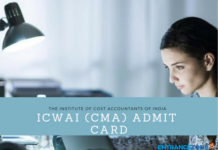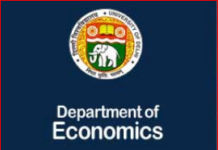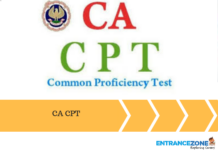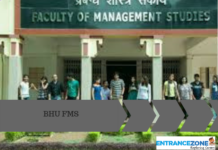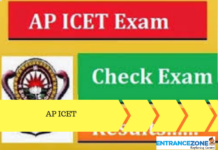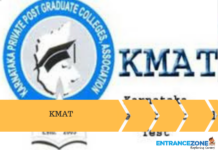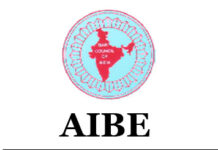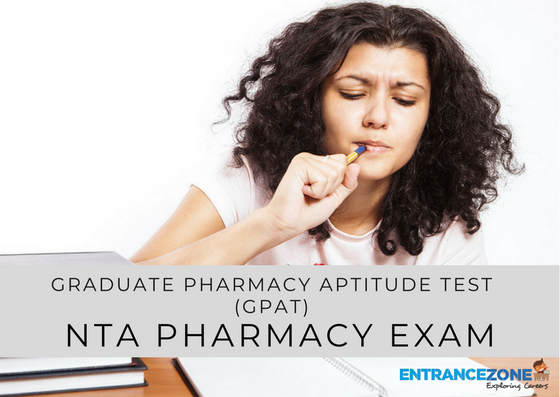NTA Pharmacy Exam: GRADUATE PHARMACY APTITUDE TEST (GPAT) is a national level entrance examination for entry into M.Pharm programmes. This exam is held once a year. The GPAT is a computer-based online test that is conducted in a single session for three hours. Its score is accepted by all AICTE-Approved Institutions/University Departments/Constituent Colleges/Affiliated Colleges. A few scholarships and other financial assistance in the field of Pharmacy are also given on the basis of the GPAT score. Those who are seeking to apply must read the whole article to know GPAT 2022.
Admission Open 2023
- Top University & Colleges Official Links, Application & Scholarship Forms.
NTA Pharmacy Exam GPAT 2022 Important Dates
Contains
From now onwards, the National Testing Agency is being conducted Authority for Conducting the GPAT as declared by MHRD. Candidates can check the Important Dates below.
Subscribe to Get Updated Information about NTA Pharmacy Exam: Online GPAT 2022 Dates, NTA Syllabus - Admissions
| Events | Dates |
|---|---|
| GPAT application form 2022 release date | 23 December 2021 |
| Last date to submit the form | 30 January 2022 |
| Last date to pay the application fee | 06 February 2022 up to 11:59 PM |
| Correction Window | 01 – 02 February 2022 |
| Availability of admit card | 13 February 2022 |
| GPAT 2022 exam date | 27 February 2022 |
| Display of recorded responses and answer key | 07-09 March 2022 |
| Display of Final answer key | 18 March 2022 |
| Declaration of result | 19 March 2022 |
NTA Pharmacy Exam GPAT 2022 Registration
Important instructions for applying NTA Pharmacy Exam GPAT 2022 has been given below:
- Candidate must apply in online mode only at the official website gpat.nta.nic.in.
- Alos, more then 0ne form will lead to the cancellation of candidature.
Things to keep ready before filling the form:
- A computer with an internet connection
- Qualification details
- Scanned copy of passport size photograph
- Scanned copy of the signature
- Valid email id
- Valid mobile number
- Credit/debit card, or net banking details to pay fee
- Printer
How to apply for GPAT 2022? – Following are the steps to be followed to fill the form:
- Step 1- Go to gpat.nta.nic.in and register by filling up the details asked in the registration form. Note down the application number.
- Ste 2 – Then login with application number and password and upload documents – photo, signature.
- Step 3 – After that pay fee.
- Step 4 – Then print the confirmation page and take multiple copies of it.
- Step 5 – Finally, choose the exam city.
NTA Pharmacy Exam GPAT 2022 Application Fee
The candidates can pay the application fee using debit card/credit card / net banking / UPI services / Paytm. The fee is as follows
| Categories | Amount |
| GEN (UR) | Boys – Rs 2000 Girls – Rs 1000 |
| Gen-EWS/ SC/ST/PwD /OBC-(NCL) | Boys – Rs 1000 Girls – Rs 1000 |
NTA Pharmacy Exam GPAT 2022 Eligibility Criteria
The candidate can go through the eligibility criteria before appearing in the test.
- The foremost criteria are that the aspirant must be a citizen of India.
- Bachelor’s degree holders in Pharmacy are must (4 years after 10+2, including lateral entry candidates).
- B. Pharmacy course is also eligible for appearing in GPAT exam those who are in the final year.
- B. Tech (Pharmaceutical and fine chemical technology) / Equivalent Students are not eligible to appear for GPAT examination.
NTA Pharmacy Exam GPAT 2022 Question Pattern
Candidates can check below NTA Pharmacy Exam GPAT 2022 QUestion Pattern:
- Medium of question paper: English medium
- Type of questions: There are multiple-choice questions in the test
- Duration: The candidates are given a 03 hours duration(180 minutes)
- No. of questions: There are 125 MCQs in the test
- Each question is of 04 marks.
- For each incorrect answers, 01 marks shall be deducted
- Unanswered question will lead to 0 marks
Examination Scheme
| TOPIC | No. of Qs | Max Marks |
| Pharmaceutical Chemistry | 38 | 152 |
| Pharmaceutics | 38 | 152 |
| Pharmacognosy | 10 | 40 |
| Pharmacology | 28 | 112 |
| Other Subjects | 11 | 44 |
| Total | 125 | 500 |
NTA Pharmacy Exam GPAT 2022 Syllabus
| PHYSICAL CHEMISTRY | Composition & physical states of matter, Colligative Properties, Thermodynamics, Refractive index, Solutions, Electrochemistry, Ionic equilibrium, Kinetics |
| PHYSICAL PHARMACY | Matter properties of matter, Micromeritics and powder rheology, Surface and interfacial phenomenon, Viscosity and rheology, Dispersion systems, Complexation, Buffer, Solubility |
| PHARMACEUTICS | Pharmacy Profession & Introduction to Pharmaceuticals, Introduction to dosage form, Sources of drug information, Allopathic dosage form, Crude extract, Allergenic extract, Biological products, Pharmaceutical Plant location layout, Dosage Form Necessities and Additives, Powders, Capsules, Tablets, Parenterals – product requiring sterile packaging, Suspensions, Emulsions, Suppositories, Semisolids, Liquids(solutions, syrups, elixirs, spirits, aromatic water, liquid for external uses), Pharmaceutical Aerosols, Ophthalmic preparations, Preformulations, Stability of formulated products, Prolonged Action Pharmaceuticals, Novel Drug delivery system, GMP and Validation, Packaging Materials, Cosmetics, Pilot plant scale-up techniques |
| PHARMACOLOGY | General Pharmacology, Neurohumoral transmission in the autonomic and central nervous system, Pharmacology of peripheral nervous system, Pharmacology of central nervous System, Pharmacology of cardiovascular system, Drugs acting on the urinary system, Drugs acting on Respiratory system, Pharmacology of Endocrine system, Chemotherapy, Autacoids and their Antagonists, Pharmacology of drug acting on the gastrointestinal tract, Chronopharmacology, Immunopharmacology, Vitamins & Minerals, Principles of toxicology |
| PHARMACOGNOSY | Introductory Pharmacognosy, Classification of crude drugs, Factors influencing the quality of crude drugs, Techniques in microscopy, Introduction to phytoconstituents, Principles of plant classification, Pharmaceutical aids, Animal products, Plant products, Toxic drugs, Enzymes, Natural pesticides and insecticides, Adulteration and evaluation of crude drug, Quantitative microscopy, Biogenetic pathways, Carbohydrates & lipids, Tannins, Volatile oils, Resinous drugs, Glycosides, Alkaloids, Extraction and Isolation Techniques, Phytopharmaceuticals, Quality control and standardization of herbal drugs, Herbal formulations, Worldwide trade of crude drugs and volatile oils, Herbal cosmetics, Traditional herbal drugs, Plants based industries and research institutes in India, Patents, Ayurvedic system of medicine, Homeopathic system of medicine. |
| PHARMACEUTICAL ANALYSIS | Importance of quality control in pharmacy, Acid-base titrations, Non-aqueous titrations, Oxidation-reduction titrations, Precipitation titrations, Complexometric titrations, Gravimetry, Extraction techniques, Potentiometry, Miscellaneous methods of analysis, Calibration, General principles of spectroscopy, Ultraviolet-visible Spectrometry, Spectrofluorimetry, Flame photometry & atomic absorption spectrometry, Infrared spectrometry, Proton nuclear magnetic resonance spectrometry, Mass spectrometry, Polarography, Nephelometry & Turbidimetry, Chromatography, Miscellaneous. |
| BIOCHEMISTRY | Cell, Carbohydrates, Lipids, Vitamins, Biological oxidations & reductions, Enzymes, Nucleic acids, Hereditary diseases. |
| BIOTECHNOLOGY | Plant Cell and Tissue Culture, Animal Cell Culture, Fermentation Technology and Industrial Microbiology, Recombinant DNA Technology, Process and Applications, Biotechnology-Derived Products. |
| MICROBIOLOGY | Introduction to Microbiology, Microscopy and staining technique, Biology of Microorganisms, Fungi and Viruses, Aseptic Technique, Sterilization & Disinfection, Microbial spoilage, Vaccines & Sera, Microbial Assay. |
| PATHOPHYSIOLOGY | Basic principles of cell injury and adaptation, Basic mechanisms of inflammation and repair, Disorders of fluid electrolyte and acid-base balance, Disorders of homeostasis: white blood cells, lymphoid tissues, and red blood cells related diseases, etc. |
| BIOPHARMACEUTICS AND PHARMACOKINETICS | Bio-pharmaceutics, Bio-availability & Bio-equivalence, Bio- pharmaceutical statistics. |
| CLINICAL PHARMACY AND THERAPEUTICS | CLINICAL PHARMACY AND THERAPEUTICS |
| HUMAN ANATOMY & PHYSIOLOGY | Cell physiology, The Blood, Gastrointestinal tract, Respiratory System, Autonomic nervous system, Sense organs, Skeletal System, Central Nervous system, Urinary System, Endocrine Glands, Reproductive System, Cardiovascular system, Lymphatic system. |
| PHARMACEUTICAL ENGINEERING | Fluid flow, Heat transfer, Evaporation, Distillation, Drying, Size reduction and size separation, Extraction, Mixing, Crystallization, Filtration and Centrifugation, Dehumidification and humidity control, Refrigeration and air conditioning, Material of constructions, Automated process control systems, Industrial hazards & safety precautions. |
| PHARMACEUTICAL MANAGEMENT | Introduction to management, Planning and Forecasting, Organization, Research Management, Inventory Management, Communication, Marketing Research, Leadership and motivation, Human resource and development (HRD), GATT, World trade organization (WTO) and trade-related intellectual property rights (TRIPS), Standard institutions and regulatory authorities. |
| PHARMACEUTICAL JURISPRUDENCE | PHARMACEUTICAL JURISPRUDENCE |
| DISPENSING & HOSPITAL PHARMACY | DISPENSING & HOSPITAL PHARMACY |
| ORGANIC CHEMISTRY | General principles, Different classes of compounds, Protection & deprotection of groups, Aromaticity & chemistry of aromatic compounds, Different aromatic classes of compounds, Polycyclic aromatic hydrocarbons, Carbonyl Chemistry, Heterocyclic Chemistry, Bridged rings, Kinetic & thermodynamic control, Stereochemistry, Carbohydrates, Amino acids & proteins, Pericyclic reactions |
| PHARMACEUTICAL CHEMISTRY | I. Pharmaceutical Inorganic Chemistry – Pharmaceutical Impurities, Monographs, Isotopes, Dentifrices desensitizing agents & anticaries agents. II. Medicinal Chemistry – Therapeutic classes of drugs, Various classes of therapeutic agents, Different classes of therapeutic drugs, Different classes of therapeutic drugs |
Important Links
Click Here to Download GPAT 2021 Information Brochure
NTA Pharmacy Exam GPAT 2022 Highlights
Candidates can check below in the table short details about NTA Pharmacy Exam 2022:
| Exam Name | GPAT (Graduate Pharmacy Aptitude Test) 2022 |
|---|---|
| Conducting Body | NTA (National Testing Agency) |
| Level of exam | National Level |
| Frequency | Once a Years |
| Official website | gpat.nta.nic.in |
FAQ (Frequently Asked Questions)
Question 1. What is the mode of Examination?
Answer 1. The examination was conducted in online mode as a computer-based test (CBT).
Question 2. How many times GPAT 2022 is conducted in a year?
Answer 2. It is conducted once a year.
Question 3. Will I receive my scorecard through Post?
Answer 3. No, you have to download it from the official website of GPAT.
For more details visit the NTA GPAT official website: http://nta.ac.in/Pharmacyexam
Stay tuned with Entrancezone.com for more updates on NTA Pharmacy Exam 2022.
National Testing Authority, National Testing Body.
nta gpat 2020, gpat 2020 registration, nta gpat 2020 registration, nta gpat login, gpat 2020 admit card, nta gpat 2020 syllabus.
